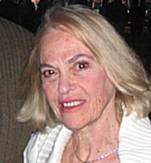
THE VOICE OF INTERNATIONAL LITHUANIA
|
VilNews has its own Google archive! Type a word in the above search box to find any article.
You can also follow us on Facebook. We have two different pages. Click to open and join.
|
Olga Zabludoff: Reply to Donatas Januta re Holocaust in Lithuania (3)
I dare to hope that our debate
can build bridges to a better
understanding

Olga Zabludoff
Dear Donatas,
The last paragraph in your article of 8 November is a good place to begin my response. I concur that our differences of opinion as well as our areas of agreement should be viewed as an exchange of honest, healthy dialogue. I would even dare to hope that it can begin to build bridges to a better understanding of all the issues we wander into.
For a moment let’s forget about the Lithuanian economy during medieval times. It’s really hard to relate to. Let’s move forward to the more modern economy of the inter-war years. Yes, on the eve of World War 1 Lithuania was economically backward. But that had nothing to do with your claim that the Jews did not contribute to the economy. Like the rest of Eastern Europe at the time, economic development was lagging in Lithuania. Modern economic strides began in Western Europe much earlier than it did in Eastern Europe.
You speak of the Jews having had a monopoly as merchants, traders, shopkeepers and craftsmen. There was no such thing as a monopoly in these small and scattered operations. These were mostly mom-and-pop businesses run out of front rooms in their homes. Of course, like everyone else, they tried to get the best prices they could, but to speak of anti-trust laws and anti-price-fixing laws is totally out of context for that environment.
Another point of importance is that Jews had little choice but to make their living as merchants and traders. Traditionally they were excluded from other occupations and professions. For example, my father had studied engineering in St. Petersburg only to discover when he returned to Lithuania that it was impossible for a Jew to find employment as an engineer. Instead, he became a bank manager in the Jewish Peoples’ Bank.
I still think you are underestimating the contributions of the Jews to the Lithuanian economy, so let me quote from an article which appeared in the Lithuania Tribune of 12/23/10 during the visit of Prime Minister Andrius Kubilius to Israel:
“Prime Minister Kubilius has agreed that the Lithuanian history is unimaginable without the Lithuanian Jewish community that has left a deep imprint on our history and our lives. Since the times of Vytautas the Great, it has always been an integral part of the Lithuanian society, closely involved in the development of science, economy and culture.”
One major difference of opinion in our discussions concerns the definition of “genocide.” The term “genocide” was first applied in 1944 in regard to the attempted extermination of the Jews by Nazi Germany. It clearly refers to the systematic killing or extermination of a whole people. Obviously, and unfortunately, there have been other genocides, but the Soviet regime did not liquidate the majority of Lithuanians. That the Soviets committed terrible crimes against the Lithuanians is a given, that the nation lost political leaders, army officers, clergymen and others is undisputed. But the Lithuanian population was very far from being exterminated.
To say that there were other genocides does not diminish the Holocaust, but to equate the Holocaust with events that were not genocides is to diminish the Holocaust. Comparing incomparables, equating unequals is a distortion of history.
I’m sure that Professor Dovid Katz can easily defend himself, so I won’t venture into that area. From reading his articles in the various media and on his website www.defendinghistory.com I have to assert that he is courageously outspoken and is probably feared and shunned by many in the Lithuanian government. But if they would only listen to him, I believe it would help them accomplish what they say they are sincerely trying to do: to improve their damaged relationship with their small Lithuanian-Jewish community and, consequently, with world Jewry.
Professor Katz analyzes politics and politicians from a vantage point that few other scholars have reached. He should be valued in Lithuania, not feared, if the government wants to deal with its Jewish problems in a realistic way to create a better tomorrow for themselves and their people.
- Bookmark :
- Digg
- del.icio.us
- Stumbleupon
- Redit it
VilNews e-magazine is published in Vilnius, Lithuania. Editor-in-Chief: Mr. Aage Myhre. Inquires to the editors: editor@VilNews.com.
Code of Ethics: See Section 2 – about VilNews. VilNews is not responsible for content on external links/web pages.
HOW TO ADVERTISE IN VILNEWS.
All content is copyrighted © 2011. UAB ‘VilNews’.

 Click on the buttons to open and read each of VilNews' 18 sub-sections
Click on the buttons to open and read each of VilNews' 18 sub-sections 



[…] Olga Zabludoff: Reply to Donatas Januta re Holocaust in Lithuania (3) I dare to hope that our debate can build bridges to a better understanding […]
[…] Olga Zabludoff: I dare to hope that our debate can build bridges to a better understanding […]